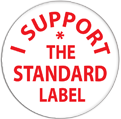While I’ve been off traveling, Google and Yahoo have been launching new or revving existing products that verge somewhere between Search VRM and Complex Search.
Matt Cutts (at his own blog) and Greg Sterling and Chris Sherman at Search Engine Watch, all have great writeups of the details of the powerful new Custom Search Engine service from Google. In short: Google is making it easier for websites to offer customized searches based on a focused subset of Google. The websites provide hand-crafted context through an explicit interface in the CSE design and Google kicks back a bit of the AdSense revenue to the website.
It’s a great package.
- You get to integrate the market-leading search engine into your site
- You get to direct Google as to how they can improve the search based on the context of your website
- You get to monetize it
Brilliant. Google’s Custom Search Engines extends their service into affiliate websites in a way that empowers the individual webmaster’s expertise to improve the search. And they’ve made it so easy that literally anyone can do it.
Chris Sherman also has a nice write up of the improvements to the Yahoo toolbar. The main change: improvements to managing bookmarks, including integration with the search as well as making it easy to add a bookmark button to the toolbar.
Yahoo has also made it easier to organize your bookmarks with this new version. […] You can also add tags to your bookmarks, again either when you initially save one or later. If you check the “use tags” box as you’re saving a bookmark, Yahoo will suggest tags to associate with a page[…]
Alternately, you can save pages without worrying about categorization or tagging. By default, bookmarks not saved into a folder are placed in an “uncategorized” folder. To organize bookmarks, you can simply drag the thumbnail image of a page into a folder, or mark selected pages and move them all with a single command. There are also folders that display recently saved bookmarks and frequently used bookmarks.
You can edit bookmarks, adding additional information such as tags, a description, or comment. […] Yahoo has also integrated bookmarks into the search functionality of the toolbar. This means you needn’t take the trouble of organizing bookmarks into folders—you can simply rely on the search box. This works well, since Yahoo is storing the full-text of web pages when you bookmark them.
In short, Yahoo is making it much easier to keep track of interesting websites by saving entire pages, letting you tag them, and then reintegrating those pages into your subsequent searches. Google Desktop has been indexing and searching web history for a while, but Yahoo! is essentially bringing the Del.icio.us model onto your home computer.
Unlike Yahoo’s Del.icio.us and MyWeb, bookmarks saved using the new bookmarking feature are not intended to be made public and shared. While you can share bookmarks with others either by email or instant messenger with other individuals, they aren’t public in the way that a Del.icio.us bookmark is, for example.
What’s exciting to me about both these developments is the increase in control for the user. Google gives website owners incredible power to customize searches for their user base while Yahoo is making it much easier for users to manage complex pan-Internet search (and non-search) activity. This means more power for users, more effective searches, and quite likely more revenue for everyone.
Watch for this trend to continue.

